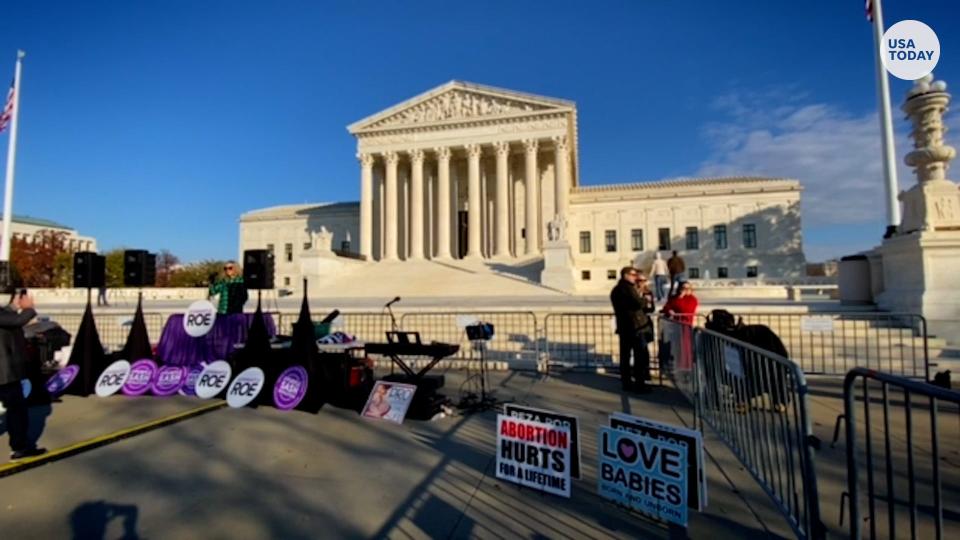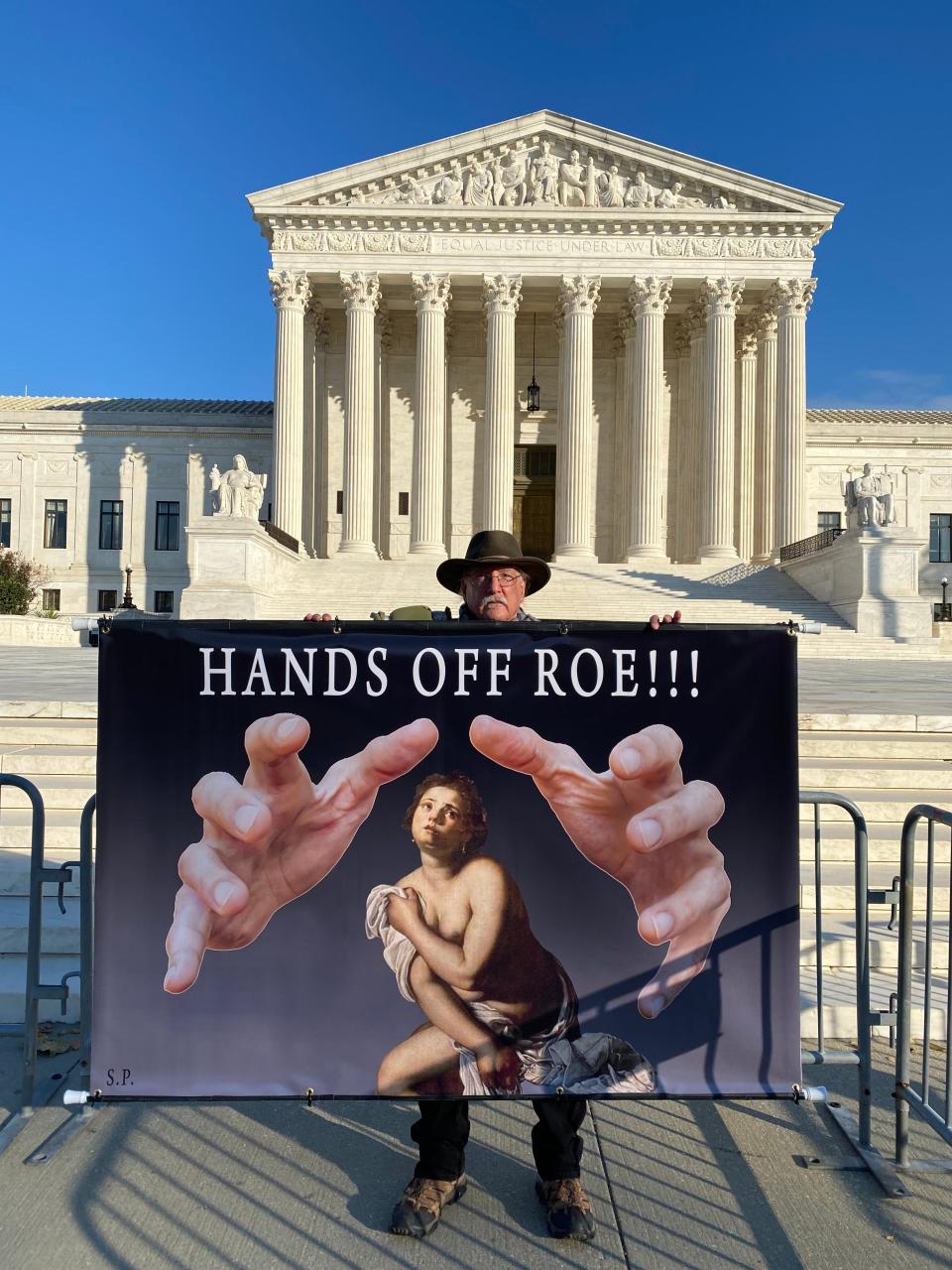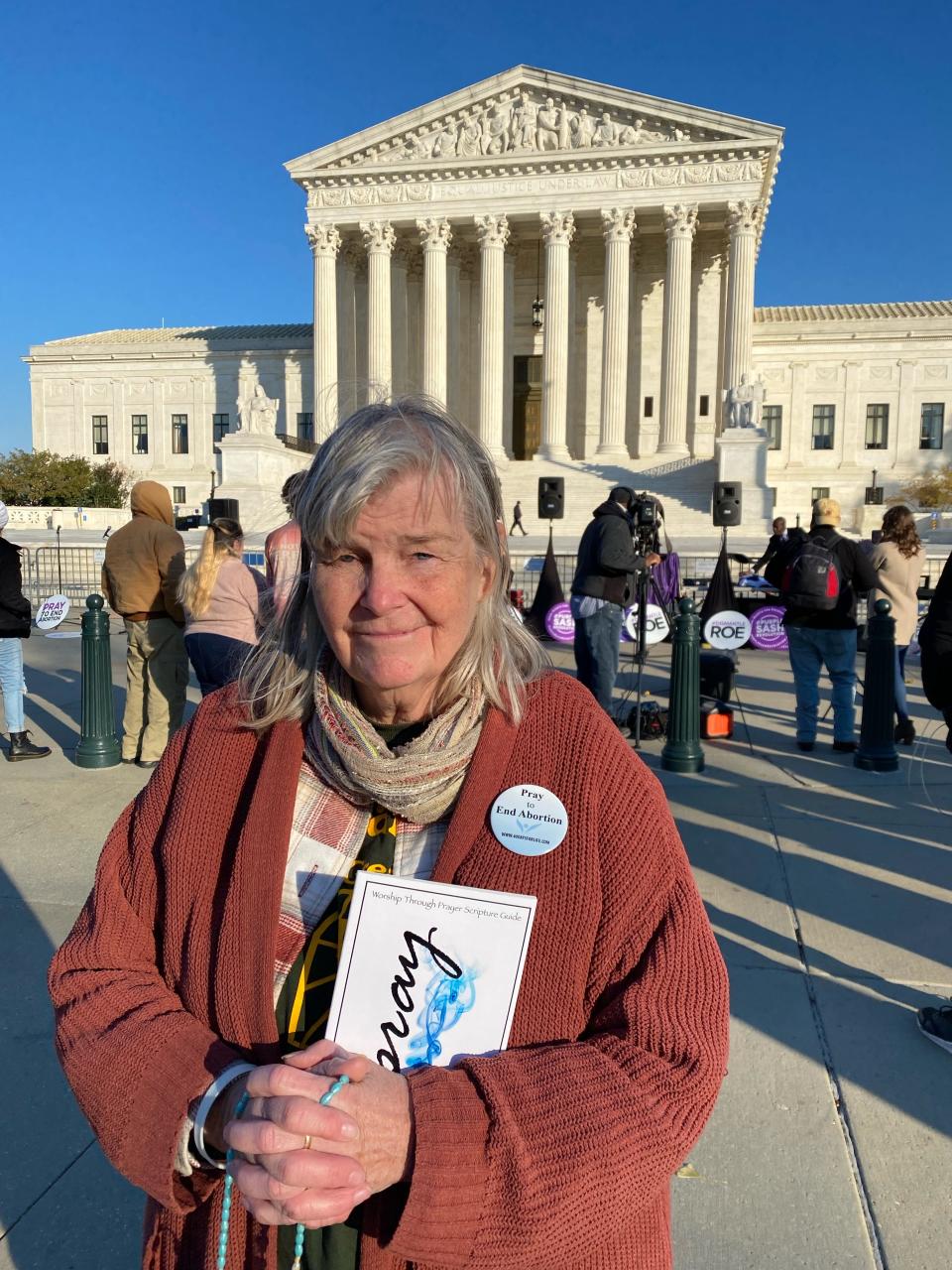We condemn from afar but where's the empathy when it comes to abortion?
WASHINGTON – I had barely been in town for 20 minutes when I was hit in the face with an impassioned argument about the atrocities of abortion.
I was in an Uber traveling to my hotel from Ronald Reagan Washington National Airport when the driver asked where I was coming from and why I was in town. Ride-share small talk, right? I explained that I'm a journalist and flew here to write about a historic U.S. Supreme Court case on Wednesday. I offered no other details.
"Ah, the abortion case," my male driver said. "I'm Muslim and we don't accept abortion. It's wrong. It's evil. People say a woman should be able to choose. Shouldn't a woman have made those choices before she got pregnant?"

I ticked off reasons some might seek to end a pregnancy: rape, incest, dangerous medical complications for the fetus or mother, financial inability to raise a child, an abusive partner, failed birth control. He shook his head and dismissed me with silence for the rest of the ride.
It dawned on me in the moment that here was yet another man who felt emboldened to try to dictate what a woman should do with their body.
The Mississippi case that got us here
I know there are passionate people on both sides of the abortion debate. I met some of them Tuesday when I spent some time outside the Supreme Court. I intend to hang out with them and many more again Wednesday as the justices listen to oral arguments in the pivotal Dobbs v. Jackson Women's Health Organization case.
The case stems from a Mississippi law that, if affirmed, would block people more than 15 weeks pregnant from obtaining an abortion – a move reproductive rights advocates say would overturn Roe v. Wade. If that were to happen, it's likely dozens more states, particularly those in the South and Midwest, would move to summarily ban abortions.

Folks have traveled here from all over the country to kneel and pray silently in front of the Supreme Court, to use bullhorns and portable microphones to convey their beliefs, to display enlarged photos of aborted fetuses, to play music and to pass out literature condemning what they consider religious and political zealots who want to control women's bodies.
Stephen Parlato, 67, of Boulder, Colorado, is a retired mental health counselor. He helped young adults dealing with diagnoses such as schizophrenia. He encountered girls and women who made difficult decisions about abortion. He described the heavy-handed barriers to abortion as "a war on those who are already warred upon."
"I'm here pleading with this court not to overturn Roe, especially at this moment in time where we have an evangelical community that has made a pact with the Republican Party," Parlato told me. "I fear that our separation of church and state is being eroded, and I am adamantly against the state having any say whatsoever in something as intimate as a woman's choice whether to bring to full term an unwanted pregnancy."

I watched for a while as an older woman kneeled on the hard sidewalk, rosary in hand, eyes closed, simply praying. I needed to talk with her. She has been an anti-abortion activist for decades and traveled to Washington from Montague, New Jersey, to defend the lives of children.
"I am here to nonviolently oppose evil and pray that the heart of the nation will be converted to defend life," Joan Bell, 73, told me. "We always believe that love is the answer to any situation – unwanted pregnancy, even in a rape situation. The child is a second victim in a rape, and you don't kill the other victim; you let someone adopt."
It's basic health care
I felt Bell's love; I embraced it. But a right to decide when and whether to have a child should be considered basic health care; it's a constitutional right to have access to safe and legal abortion. And it has been that way – the right to choose to end a pregnancy – since 1973 with the Roe v. Wade decision.
And almost since that day, we've been chipping away at that right, with little regard to what anti-abortion laws – discriminatory by my measure – mean in real life.
It means women who are forced to bring a child into the world with limited resources to do so. It means sometimes deadly consequences when giving birth. It means genetic defects and a lifetime of suffering. It means a continued cycle of abuse and resentment.
Is this what we want for our children? Is this what we want for our future?
Ask anyone who knows me, I love, love, love babies. Yet I also recognize not everyone should give birth or be a parent. It's a hard but real truth. Abortion rates continue to plummet, as they should. But a woman must have a right to decide when that time is right for her.
It's so easy to condemn from afar. Why isn't it equally easy to exercise empathy?
National columnist/deputy opinion editor Suzette Hackney is a member of USA TODAY’S Editorial Board. Contact her at shackney@usatoday.com or on Twitter: @suzyscribe
You can read diverse opinions from our Board of Contributors and other writers on the Opinion front page, on Twitter @usatodayopinion and in our daily Opinion newsletter. To respond to a column, submit a comment to letters@usatoday.com.
This article originally appeared on USA TODAY: Mississippi abortion case at the Supreme Court: Where is the empathy?

 Yahoo Movies
Yahoo Movies 
